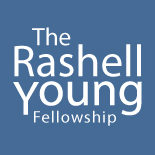
A TB patient in central India taking his treatment with the assistance and supervision of an Operation ASHA community health worker.
Last year, I met this tuberculosis (TB) patient in rural, central India. And though it may not seem like it, this is actually a moment of triumph for him. A month ago, he had started the 6-month treatment regimen for TB. And before he started treatment, he couldn’t even sit up.
TB has afflicted humanity for centuries – TB killed greats like Frederic Chopin and George Orwell, and nearly killed Nelson Mandela while he was imprisoned. Today, TB is both preventable and curable. And yet, TB remains the world’s most lethal infectious disease killer. In 2017, 10 million people contracted TB, and 1.6 million died – of a preventable and curable disease.
About Operation ASHA
It is because of these gross inequities that I joined the Operation ASHA team in a part-time capacity as the U.S. Strategic Partnerships and Development Manager in November of 2016. Operation ASHA is a last-mile healthcare delivery organization that is confronting diseases of poverty, especially TB, with the necessary combination of innovation, rigor, and cost-efficiency. Operation ASHA’s model combines in-house software and low-cost off-the-shelf components (biometric technology and tablets), employs and trains community health workers (CHWs) to deliver care and counseling, and establishes long-term support from local governments – achieving unmatched outcomes at unmatched costs across urban and rural parts of India and Cambodia.

A TB patient verifies his TB treatment with the Operation ASHA community health worker at a clinic in the slums of Delhi.
The Role of the Rashell Young Fellowship
The Rashell Young Fellowship allowed me to continue my work with Operation ASHA over the summer, while I was working full-time at a company that is working to launch a drug to treat sickle cell disease (also an underserved patient population in the U.S.).
The Rashell Young Fellowship has helped to re-invigorate and evolve my role with Operation ASHA. Some of the most exciting partnerships I have spearheaded for Operation ASHA are around using novel technologies to innovate on how Operation ASHA delivers care in challenging settings, such as utilizing visual analytics to understand our program’s effectiveness and improve health outcomes. Over the summer, I was able to develop first-hand skills with the analytics and data visualization platforms we will are partnering with and using, and will continue to be deeply involved in the progress of those partnerships while expanding my ability to support new innovation initiatives.
The Rashell Young Fellowship will also support travel related to my work with the team over the next year, helping me foster both new and existing relationships with West Coast stakeholders as well as allowing me to spend time with the team on the ground in 2019.
The support from the Rashell Young Fellowship for this experience with Operation ASHA has deepened my interest in technology innovation for global health impact in a very transformative way. I am honored to be a fellow and am tremendously grateful for the Rashell Young Fellowship’s support.

